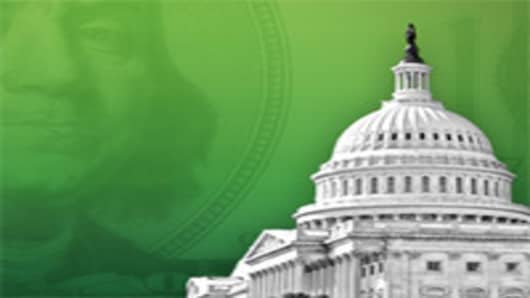In order to avoid the “fiscal cliff” Federal Reserve Chairman Ben Bernanke warned about this week, the debate raged over the best way to fix the economy: Spending cuts, tax cuts or both.
Jared Bernstein, former chief economist to Vice President Joe Biden, stressed increased revenues over spending cuts.
“If you listen to Ben Bernanke — who, I think you have to admit, is not a wild-eyed radical —what he’s saying doesn’t have to do with the overall level government spending level in the long term,” he said Friday on CNBC’s “The Kudlow Report.” “He’s saying next year it would be awfully bad for an economy that’s still finding its legs to cut out about $65 billion … automatically indiscriminately. That’s what the issue is.”



